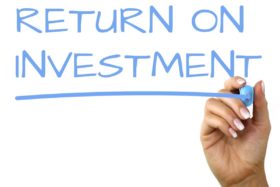Bootstrap or VC? It’s a question on so many minds as entrepreneurship flourishes beyond Silicon Valley, in cities where venture capital seems inaccessible. It’s a question that not a day goes by in which it doesn’t come up for me, based in Austin, TX, having professional roots along Sand Hill Road.
What strikes me as most valuable for us all to appreciate is that our various cultures aren’t necessarily the causes of the way we work – the way we work is as much a result of our circumstances as it is anything.
Begging the question…
Does Austin even have this more “bootstrap culture” and Silicon Valley disruptive innovation and valuations?
Actually no.
Our perception of the startup ecosystems are of symptoms, not causes. So I suppose that actually means, yes, but…
Equity must be worth something.
That’s a distinct and definitive statement I want to make sure is clear.
Equity in a business is worthless if the business doesn’t create, sustain, and deliver value in that equity.
That’s unequivocal.
It’s not right nor wrong. You don’t have to create a business with shares in order to be successful! But, equity is only worth something if IT is worth something.
No investor wants equity in a successful business merely cash-flowing.
Now, that said, obviously there are other capital sources, independent from equity, that derive value from a business – debt, profit-sharing, etc.
But the question we’re pondering asks about equity and explores valuations so we have to be explicit first that equity is ONLY worth something when the equity itself is worth something.
Can a business be profitable and successful but have equity NOT worth much??
Absolutely!
Service based businesses (agencies) are a great example of that. Their value to investors is, roughly, pinpointed at ONLY 2x revenues.
Contrast that with your typical Venture Capital funded business wherein valuations tick up over 10x revenue.
How is one business WORTH so much more than the other? Isn’t customers and revenue all that matter??
Absolutely not.
And herein we’re getting to the root of WHY it seems Silicon Valley has more of a focus on equity based ventures and investment while Austin favors bootstrapping.
Not because people want that but because they are resigned to the approach that’s available to them given the circumstances of the region.
Equity must be worth something.
- Equity in a business that will likely fail, even if funded, isn’t worth anything
- The equity in a business that can’t capably compete in the market, is likely depressed from what it could be
- The equity in a business lacking access to resources (experienced people, partners, and more capital) is worth less than the like business that is flush with those resources
- The equity in businesses where people tend to exit prematurely, or for less than is possibly attainable, is simply worth less than where business strive for more
I can go on but hopefully you’re seeing a picture of the WAY business is done, generally speaking, impacts an outcome for all the businesses therein. Sales and revenue are a critical consideration and an invaluable resource among many; but sales and revenues are considerations among many.
As a key example of the distinctions I’ve experienced first hand, in both markets:
- Austin favors Sales. Sales accelerators are prolific. Advisors encourage customer adoption. Rather than bluntly saying, “no,” many investors mis-guidedly encourage struggling entrepreneurs by saying things like, “come back when you have more customers.”
I rarely heard such things in Silicon Valley. Now, granted, this is a self full-fulling cycle… Austin focuses on customers and revenue, that makes investors less *necessary* (seemingly) yet when founders seek (and need) capital and those very investors, then necessary, say, “more customers,” founders believe that and keep “bootstrapping.”
Out of necessity.
KEEP BOOTSTRAPPING. Because let’s get one thing clear – every startup, every founder, starts out bootstrapping.
And then you hear the encouragement in the community that it’s “better that way!” As though bootstrapping or funding is inherently better….
Better is succeeding; not drinking the cool-aid of a methodology.
- Silicon Valley is Marketing focused. Startups, there, focus on market share and competitive advantage. They focus on disruptive innovation and building capable teams that will find success. Capital is a competitive advantage. Funding, not without its costs, is a competitive advantage. You see the impact of this in the litany of ventures there that didn’t have customers for years! Building value in equity, market share, resulting in business of great value… with incredulously little revenue.
Not better. Different.
Economists in the 80s and 90s (pre-internet) were noting that Marketing creates the most value in business but when the internet came along and broke (*changed*) how marketing works, only Silicon Valley (really) made that transition, as the Marketers were embedded in the very evolution of our economy. Elsewhere, Marketers continued to practice traditional marketing, while internet-savvy marketers built companies that changed the world.
And you see the legacy of that. Outside of Silicon Valley, Marketers are generally now considered glorified Lead Gen hires, brought in only after the founders have a product they want to sell.
Equity must be worth something.
A sold product in a service business… a competitive company, with valued equity, is a market driven business.
Equity must be worth something.
When it’s not, investors don’t participate. Period.
When investors aren’t interested or available, founders bootstrap. And when founders bootstrap, out of necessity, they perpetuate a culture that bootstrapping is *better* because humans commiserate with one another so as to feel good about their circumstances.
In as much as I was asked, how does the “Bootstrap Culture” of a place like Austin change entrepreneurship from an “Equity Culture” of a place like Silicon Valley? It guides us as an ecosystem as to what we might address so as to overcome the challenges that hinder innovation and enable entrepreneurs who should be funded to find it, locally.

